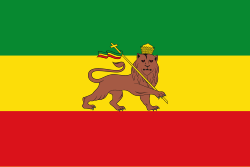**Rastafari**
The term #0excludeGlossary is steeped in rich history and cultural significance, particularly within the cannabis community. It derives from the name Ras Tafari Makonnen, who later became Emperor Haile Selassie I of Ethiopia. #1excludeGlossary means “chief” or “prince,” and “Tafari” was his personal name. The Rastafari movement emerged in Jamaica during the 1930s, inspired by the coronation of Haile Selassie I and the teachings of Marcus Garvey. Cannabis, or “ganja,” holds a sacred place in Rastafarian rituals, believed to cleanse the mind and body, facilitate meditation, and bring one closer to the divine. Over time, the term Rastafari has transcended its religious origins, becoming synonymous with a broader cultural movement that advocates for peace, unity, and a return to African roots. In today’s rapidly changing cannabis landscape, the Rastafari ethos continues to influence and inspire, emphasizing the spiritual and communal aspects of cannabis consumption. [Source: Encyclopedia.com, BBC]
Rastafari is an Abrahamic religion that developed in Jamaica during the 1930s. It is classified as both a new religious movement and a social movement by scholars of religion. There is no central authority in control of the movement and much diversity exists among practitioners, who are known as Rastafari, Rastafarians, or Rastas.

Rastafari beliefs are based on an interpretation of the Christian Bible. Central to the religion is a monotheistic belief in a single God, referred to as Jah, who partially resides within each individual. Rastas accord key importance to Haile Selassie, Emperor of Ethiopia between 1930 and 1974, who is regarded variously as the Second Coming of Jesus, Jah incarnate, or a human prophet, though the emperor's own religion was Christianity. Rastafari is Afrocentric and focuses attention on the African diaspora, which it believes is oppressed within Western society, or "Babylon". Many Rastas call for this diaspora's resettlement in Africa, a continent they consider the Promised Land, or "Zion". Rastas refer to their practices as "livity", which includes adhering to Ital dietary requirements, wearing their hair in dreadlocks, and following patriarchal gender roles. Communal meetings are known as "groundations", and are typified by music, chanting, discussions, and the smoking of cannabis, the latter regarded as a sacrament with beneficial properties.
Rastafari originated among impoverished and socially disenfranchised Afro-Jamaican communities in 1930s Jamaica. A reaction against Jamaica's then-dominant British colonial culture, it was influenced by both Ethiopianism and the Back-to-Africa movement promoted by black nationalist figures such as Marcus Garvey. The religion developed after several Protestant Christian clergymen, most notably Leonard Howell, proclaimed that Haile Selassie's 1930 crowning as Emperor of Ethiopia fulfilled a biblical prophecy. By the 1950s, Rastafari's countercultural stance had brought the movement into conflict with wider Jamaican society, including violent clashes with law enforcement. Early Rastafari often espoused black supremacy as a form of opposition to white supremacy, but this has gradually become less common since the 1970s. In the 1960s and 1970s, it gained increased respectability within Jamaica and greater visibility abroad through the popularity of Rastafari-inspired reggae musicians, most notably Bob Marley. Enthusiasm for Rastafari declined in the 1980s following the deaths of Haile Selassie and Marley, but the movement has survived and maintains a presence in many parts of the world.
The Rastafari movement is decentralised and organised on a largely sectarian basis. There are several denominations, or "Mansions of Rastafari", the most prominent of which are the Nyabinghi, Bobo Ashanti, and the Twelve Tribes of Israel, each offering a different interpretation of Rastafari belief. There are an estimated 700,000 to 1 million Rastafari worldwide. The largest population is in Jamaica, although small communities can be found in most of the world's major population centres. Most Rastafari are of African descent, and some groups accept only black members, but non-black groups have also emerged.
Finnish
Etymology
From English Rastafari.
Pronunciation
- IPA(key): /ˈrɑstɑfɑri/, [ˈrɑ̝s̠tɑ̝ˌfɑ̝ri]
- Rhymes: -ɑri
- Syllabification(key): ras‧ta‧fa‧ri
- Hyphenation(key): ras‧ta‧fa‧ri
Noun
rastafari
- Rastafarianism (movement)
- Rastafarian (supporter of that movement)
Declension
Synonyms
- (Rastafarian): rasta
Further reading
- “rastafari”, in Kielitoimiston sanakirja [Dictionary of Contemporary Finnish




